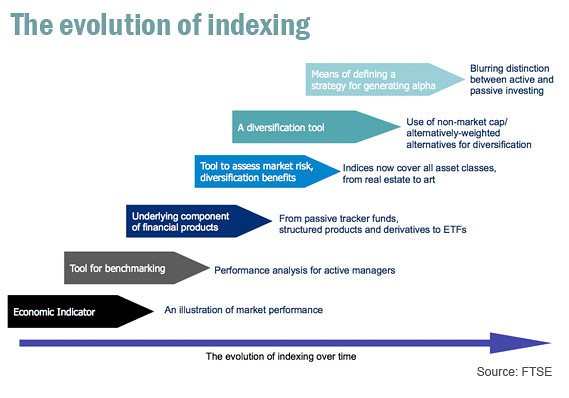Exchange Traded Funds (ETFs) What Are They
Post on: 10 Май, 2015 No Comment

Are You Creeped Out by SPDR ETFs?
I want to be a smarter investor.
In my continued effort to be a more intelligent investor and to know more about investing outside of the 401K, Im tackling the subject of exchange traded funds (more commonly referred to by their acronym, ETFs).
Most novice investors have heard of stocks and mutual funds (a combination of stocks).
Some may even be familiar with index funds, the mutual fund that mirrors a stock market index. But ETFs are still a mystery to most.
This makes sense too because most people never get beyond investing within their 401K. So if youre thinking of opening a Roth IRA. you should definitely consider learning about ETFs.
Exchange Traded Funds (Definition)
Generally speaking, ETFs are a group of investments put together and usually tied to an index (like index funds) that you can buy shares in and trade like stocks.
So basically, you get the diversification that comes with grouped investments, the low-cost that comes with passive funds, and the flexibility of someone trading in stocks. ETFs have been around since the early nineties, but came on strong in the last 10 years.
I suspect the creation of the Roth IRA had much to do with this growth. Exactly how ETFs are different from mutual funds from a composition (how theyre put together) stand point is a bit over my head.
If you want further reading on these exact differences, I suggest you read Investopedias explanation of how ETFs are constructed .
List of Popular Exchange Traded Funds
There are almost a thousand ETFs available now. There were only 2 in 1997. Crazy. Some of the more popular funds are some of the older, broad-based funds. And this makes sense because people typically invest in what they understand. Here are the top ten ETFs based on volume:
SPY SPDR S&P 500
XLF Financial Select Sector SPDR6
QQQQ PowerShares QQQ
EEM iShares MSCI Emerging Markets Index
IWM iShares Russell 2000 Index
FAS Direxion Daily Financial Bull 3X Shares
FAZ Direxion Daily Financial Bear 3X Shares
SDS ProShares UltraShort S&P500
TZA Direxion Daily Small Cap Bear 3X Shares
FXI iShares FTSE/Xinhua China 25 Index
In addition to these broad funds, you can invest in commodity ETFs (i.e. Copper ETF), small-sector ETFs, foreign ETFs, etc. Not all ETFs are created equal. Some are more actively managed and thus, more expensive.
ETF Trading
You can purchase shares in ETFs at one of the discount online stock brokers or at a mutual fund company like Vanguard.
Keep in mind that at a place like Vanguard youll have to commit several thousand to a brokerage account before you can participate. Also, keep in mind that not all firms charge a commission for trading ETFs. So be sure to compare trading costs.
ETFs vs Index Funds
For the long-term investor looking for diversified, low-cost investments, the ETF makes a lot of sense versus the normal mutual fund. However, when you compare ETFs with index funds, it gets a little harder to choose.
At the end of the day, its not going to matter a great deal which route you choose.
They are both great products, generally speaking. But just for comparisons sake, keep in mind these factors:
- ETFs can be traded like a stock.
- ETFs usually require you to pay a broker commission.
- ETFs usually dont allow for an automatic investing plan.
- ETFs come in many more varieties.
- ETFs have fewer internal expenses.
- ETFs can help you avoid capital gains taxes in taxable accounts.
- ETFs can usually be purchased in smaller amounts.
Noting those points, Id say that an ETF is for someone who is into low-cost, active, taxable investing, OR the beginning low-cost, tax-deferred investor who doesnt have a lot to invest.
What do you think? Do you invest with ETFs? Why ?














